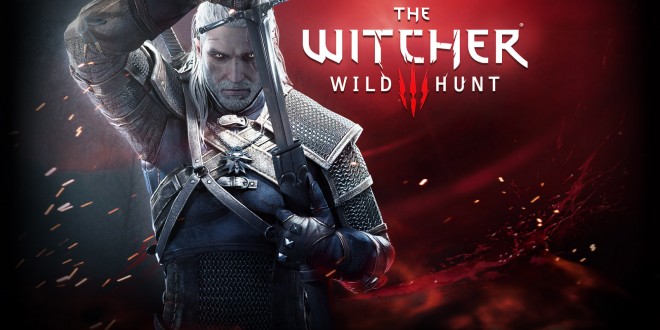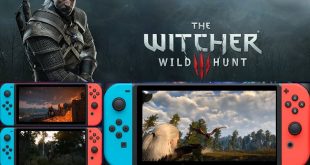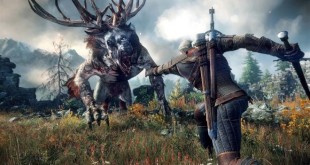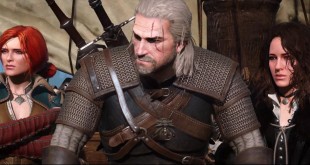The Witcher 3: Wild Hunt was released May 19th and possibly because of all the hype I made sure to preorder it. What ever it was, the game looked good and I wanted it. I’m a huge fan of games like Dragon Age and Skyrim, and have followed DA from Origins and Elder Scrolls from Morrowind. I love these types of games for their worlds and stories, and love being able to immerse myself into them. The Witcher 3 looked to fit that same niche. But, I have a confession to make. I never finished the Witcher 1 or 2; in fact, I only managed to enter the first city in Witcher 1 after my friend recommended the game to me and lent me a copy. I’ve been told since then that getting into the city isn’t much of an accomplishment. And I never even finished the opening war scene in Witcher 2; which I’m fairly certain was only the tutorial or intro, and only because I found the game on sale on Steam and attempted to prepare for the Witcher 3. I know that the Witcher series has vast amounts of lore, sort of like Bethesda’s Elder Scrolls, but I know almost nothing about it. So, in the build up to release I was a little concerned that I wouldn’t be able to connect to the game in the same way.
These decision based games tend to have strong narratives and new releases build upon your choices or the lore from prior iterations. Stepping into the Witcher 3 and Geralt’s final adventure as my first proper experience of the series made this a little bit jarring, but nowhere near enough to spoil the game – for me at least. Now, I’m fairly certain I’ve still got a long way to go to finish the game, but as follows are my thoughts so far. The Witcher 3 begins with Geralt hunting a woman, whom I think I’m supposed to know from older games, but don’t. However, the game’s tutorial fills in all of the missing details about her history with Geralt and provides you with enough context right off the bat to ground you in the story. Even if I’m supposed to know who Yenniver is, but don’t, I’m provided enough information to see why Geralt is motivated to find her. It even does so subtly through a cinematic, in doing so the Witcher 3 manages to provide this missing information in a natural enough way that it doesn’t feel like recap for newcomers.
In the Witcher 3’s first area, White Orchard, you are introduced to the effects of the war that is tearing apart the land. You quickly learn who was once a Temerian and who the Nilfgaardians are. It’s simple enough to work out who is winning the war in the region and slowly acclimate yourself to get a grasp on how you feel about each side. I do not, as of yet, know anything about the history of either side but it may be unimportant. If you haven’t played the other games, like myself, you will be able to make an assessment of the situation, the game provides you with everything that you need; but I do find myself wondering if Geralt has come across either nation in past games. From what I’ve seen, I find myself disliking Nilfgaard, but I don’t know if my perception would be altered with more background knowledge. Even so, with what is given, you have enough information to understand current goings on and to interact with them based upon what you know.
Despite this, the Witcher 3 has its clumsy moments for newcomers. There are little quips in the conversation that pull from Geralt’s past experiences. They do make sense being there, Geralt has a history and he will talk about it. And because the Witcher 3 has you chasing a woman from his past, rekindling lore seems somewhat inevitable. But, from what I can tell, “the girl of prophecy” is a new character and players will be learning about her anyway. There is also the odd character introduction where I’m supposed to know the character already, which is fine, it’s just difficult to gauge how to react to them.
My most awkward moment came in the first castle. Speaking to a general I was asked to recall past events; I assume this is to shape the world and the events of your game, but the choices I was given had no context. I had no idea who they were talking about, or the events related to them and they were never explained – so I picked at random. I’m still unsure what the effects of my choices will cause, but I’m sure I will find out. Before you start the game, you can choose not to simulate a save file and skip this conversation completely. But, it would have been nice to have a feature like Dragon Age’s Keep so you know what you’re actually simulating. Aside from this one moment that deals specifically with the past games, nothing else was particularly jarring.
The Witcher 3 does really well in easing newcomers into Geralt’s world. If my most awkward moments occurred when being introduced to people that Geralt already knows, and because I was unable to answer questions that were about the prior games – then I’d say CD Projekt Red did a pretty good job easing newcomers into the franchise. It’s really quite clear that they wanted to make their new game accessible to as many people as possible. So, the Witcher 3 stands well enough on its own as an individual entity that it doesn’t require being propped up by prior instalments in the franchise; you may miss out on prior lore, but this does very little to take away from the experience. Newcomers to the franchise will find a world that they can step into and slowly begin to understand. Should you want to delve deeper into the world, there’s no better reason to jump back into the old games or the books.
 Load the Game Video Games, Reviews, Game News, Game Reviews & Game Video Trailers
Load the Game Video Games, Reviews, Game News, Game Reviews & Game Video Trailers



